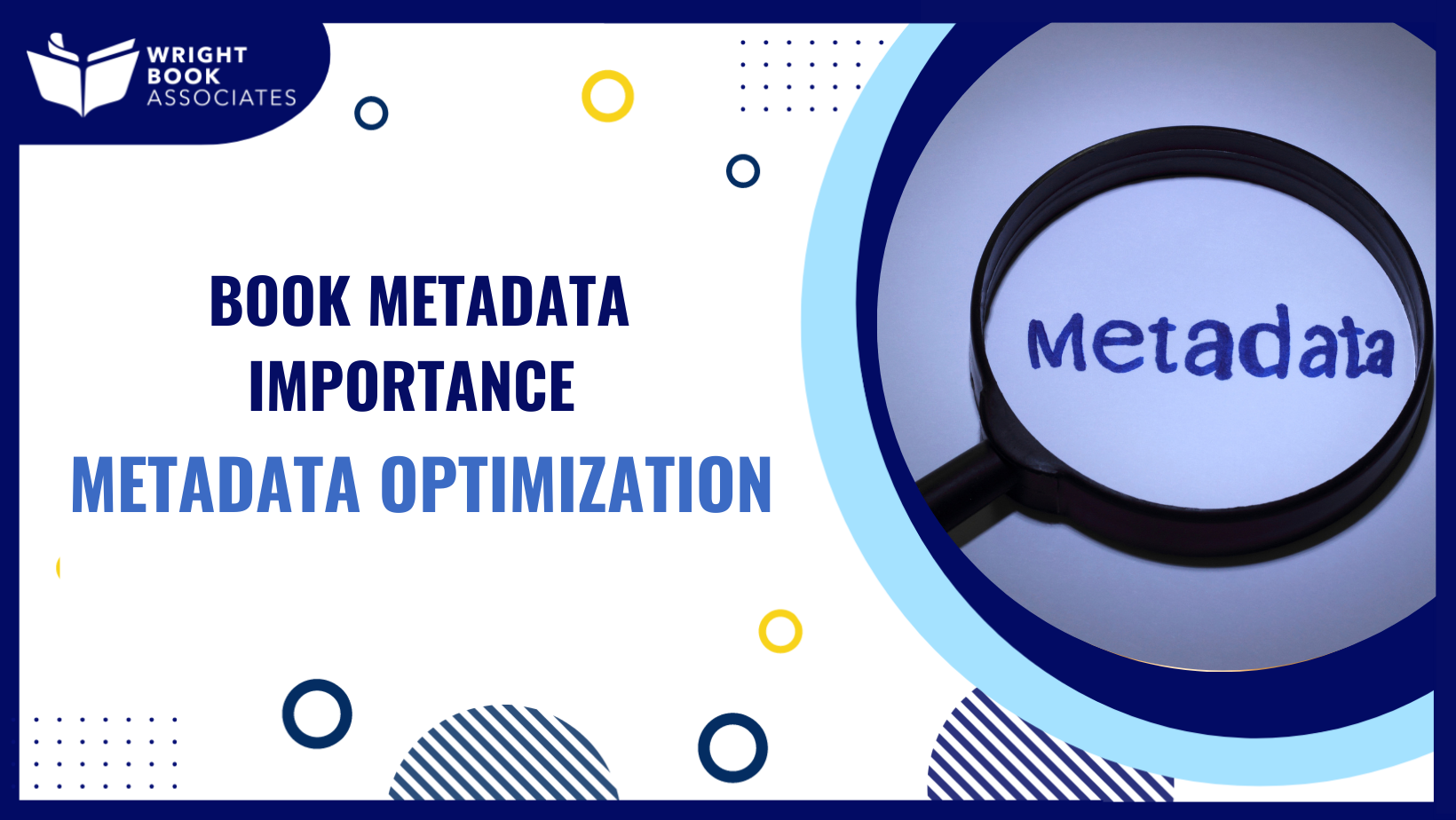Book metadata is essentially the DNA of your book in the digital world. It encompasses all the critical details—like your book’s title, author name, description, keywords, and categories—that help platforms like Amazon understand what your book is about. This understanding is crucial because it determines how your book is presented to potential readers. When optimized correctly, metadata enhances your book’s discoverability, making it easier for the right readers to find and purchase it.
What is Book Metadata?
Book metadata refers to all the information about your book that you provide to online retailers and distributors. This information includes everything from the obvious, like the title and author name, to the more technical, like keywords and categories. In essence, metadata serves as the digital fingerprint of your book, providing essential data points that help online platforms categorize and present your book to potential buyers.
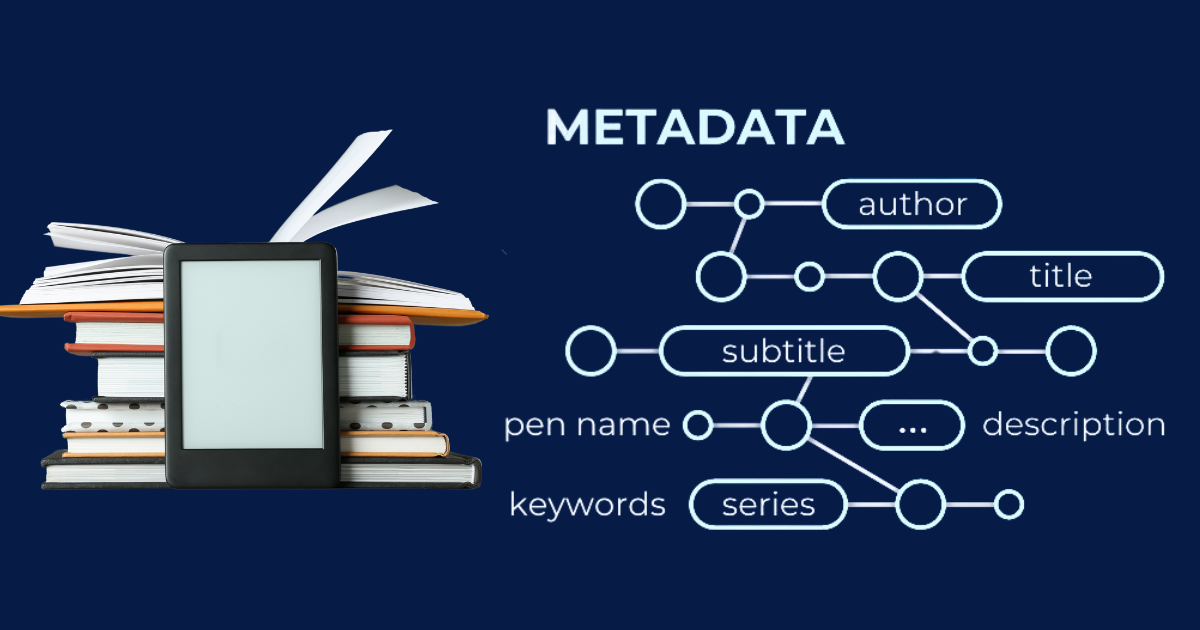
Components of Book Metadata
- Title: The name of your book, which is crucial for both identification and SEO.
- Subtitle: An additional descriptor that can provide more context or appeal.
- Author Name: Your name or pen name, which is important for branding and searchability.
- Book Description: A summary that entices readers and provides key details about the book’s content.
- Keywords: Specific terms that help search engines and platforms match your book with reader queries.
- Categories: Genre classifications that help place your book in the correct sections on online platforms.
- Publisher Information: Details about who published the book, which can influence credibility and marketing.
How Metadata Functions in the Digital Book Marketplace
Metadata acts as a guide for both algorithms and readers. When a potential reader searches for a book, platforms like Amazon use the book metadata to determine which titles best match the search query. Effective metadata optimization ensures that your book appears in relevant search results, increasing its chances of being discovered and purchased.
Additionally, well-crafted metadata can also persuade readers to click on your book, read the description, and ultimately make a purchase, making it a critical component of your overall book marketing strategy.
The Importance of Book Metadata
In an online marketplace filled with millions of books, enhanced discoverability is crucial. Metadata plays a vital role in making your book stand out from the competition.
When you optimize your book metadata, including the title, keywords, and categories, you increase the likelihood of your book being found by readers searching for specific content. Effective metadata optimization ensures that your book appears in relevant search results, making it more accessible to potential readers who are interested in your genre or subject matter.
SEO Benefits:
Search Engine Optimization (SEO) is not just for websites; it’s equally important for books. By strategically selecting and integrating keywords into your metadata, you can significantly improve your book’s search engine rankings on platforms like Amazon and Google.
When a reader searches for a topic related to your book, the algorithm scans the book metadata to determine if your title matches the query. Well-optimized metadata can push your book higher in the search results, increasing its visibility and the likelihood of a sale.
User Engagement:
Metadata is more than just a set of technical details; it’s a powerful tool for engaging potential readers. A compelling book description, accurate categories, and relevant keywords can make all the difference in whether a reader decides to purchase your book.
When your metadata resonates with what the reader is looking for, it enhances user engagement, leading to higher click-through rates, more page views, and ultimately, more sales. Effective metadata optimization ensures that once your book is discovered, it has the best chance of converting a viewer into a buyer.
Metadata Optimization: Key Strategies
Effective metadata optimization is essential for improving your book’s visibility and discoverability. Here are some key strategies to optimize your book metadata:
Keyword Research: How to Find and Use Relevant Keywords in Your Metadata
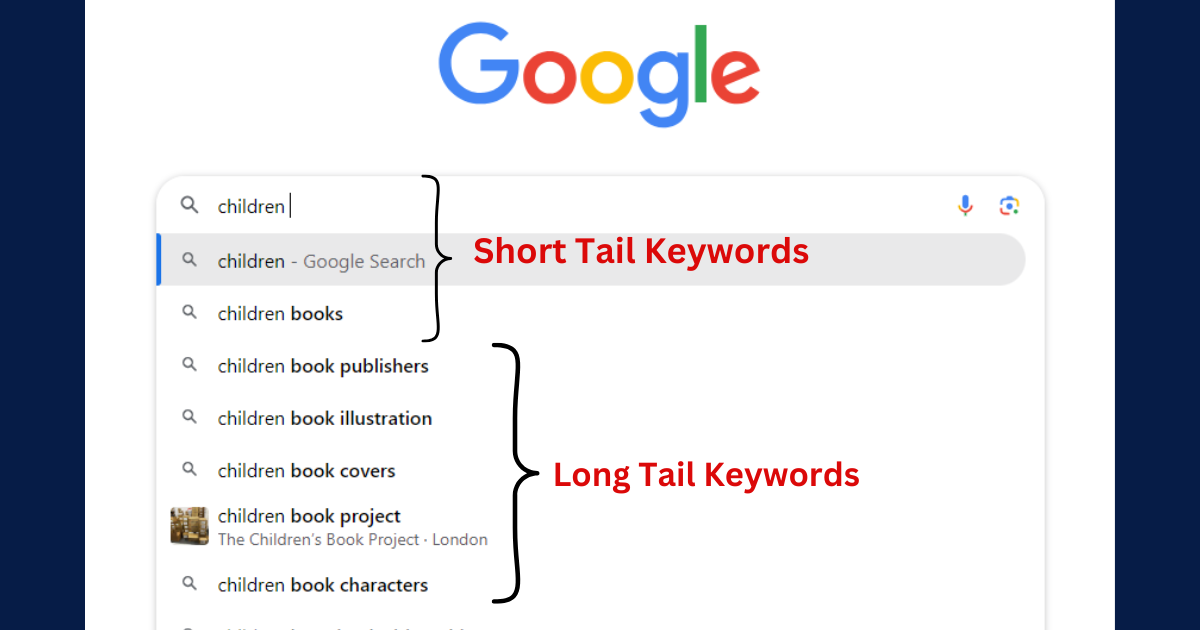
- Identify Relevant Keywords: Start by researching keywords that are relevant to your book’s genre, topic, and target audience. Use tools like Google Keyword Planner, Amazon’s search bar, and SEO tools like Ahrefs or SEMrush to find terms that potential readers are searching for.
- Incorporate Keywords Naturally: Integrate these keywords into your book metadata elements such as the title, subtitle, book description, and keywords field. Avoid keyword stuffing; instead, use them in a way that feels natural and compelling to readers.
- Use Long-Tail Keywords: Consider using long-tail keywords, which are more specific phrases that often have less competition and can attract a more targeted audience. For example, instead of just “mystery,” use “cozy mystery with a female detective.
Tips for Writing a Book Description That Attracts Readers and Algorithms
- Start with a Strong Hook: Begin your book description with a captivating hook that grabs the reader’s attention. This could be an intriguing question, a bold statement, or a compelling teaser about your book’s content.
- Highlight Key Features: Clearly outline the main themes, plot points, and unique selling points of your book. Use engaging language and make sure to include relevant keywords without overloading the text.
- Include a Call to Action: End your book description with a call to action that encourages readers to buy the book or learn more. Phrases like “Discover the secrets today” or “Join the adventure now” can prompt potential readers to take the next step.
- Optimize for Search Engines: Ensure that your book description is optimized for search engines by incorporating relevant keywords naturally. This helps improve your book’s ranking in search results on platforms like Amazon and Google.
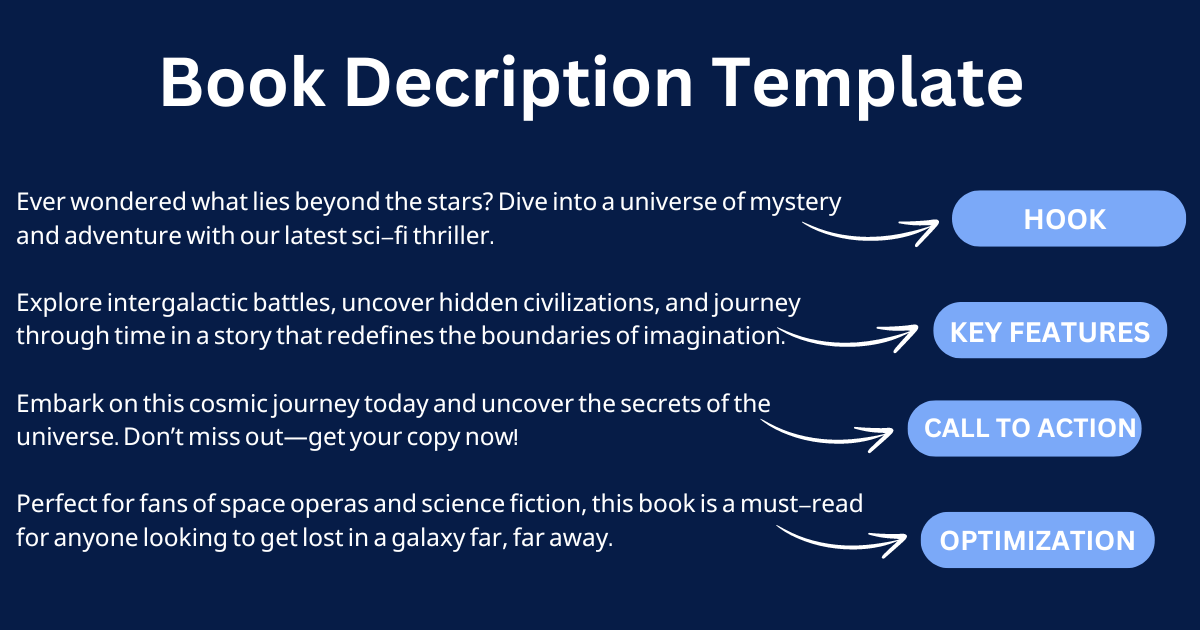
Choosing the Right Categories:
- Select Accurate Categories: Choose categories that accurately represent your book’s content. This helps ensure that your book is placed in the right sections and is more likely to be discovered by readers interested in those genres or topics.
- Use Sub-Categories Wisely: Take advantage of sub-categories to further refine your book’s placement. This can help target more specific niches and increase your book’s visibility within those areas.
- Research Competitors: Look at similar books in your genre to see which categories they are listed under. This can give you insights into where your book might perform well.
Author Bio and Publisher Information:
- Create a Professional Author Bio: Your author bio should highlight your credentials, expertise, and any relevant experience. Include keywords related to your genre or subject matter to help with discoverability. A well-crafted bio can build trust and credibility with potential readers.
- Include Publisher Information: Accurate publisher information adds legitimacy to your book. Ensure that this information is complete and up-to-date, as it can also influence how your book is perceived by readers and algorithms.
- Link to Author Platforms: If possible, include links to your author website or social media profiles in your author bio. This can help readers learn more about you and your other works, potentially leading to increased engagement and sales.
By implementing these metadata optimization strategies, you can improve your book’s visibility on online platforms, attract more readers, and ultimately boost your sales.
Adding Metadata to Kindle Books
Adding and updating metadata on Amazon Kindle Direct Publishing (KDP) is a crucial step in ensuring your book is discoverable by potential readers.
Here’s a step-by-step guide:
- Log into Your KDP Account: Access your KDP dashboard by logging in with your Amazon account.
- Select Your Book: From the “Bookshelf” tab, choose the book you want to update. If you’re publishing a new book, click on “Create a New Title.”
- Enter Book Details: Fill in the required fields under the “Book Details” section. This includes your book’s title, subtitle, series information (if applicable), and author name.
- Add Keywords: Scroll down to the “Keywords” section. Here, you can enter up to seven keywords or phrases that describe your book. Choose terms that are relevant and popular in searches but not overly competitive.
- Choose Categories: Select appropriate categories under the “Categories” section. You can choose up to two categories that best describe your book’s genre or subject.
- Write a Compelling Book Description: Enter your book description in the provided field. This should be a concise and engaging summary of your book, incorporating keywords naturally.
- Upload Your Manuscript and Cover: Proceed to upload your manuscript and book cover. Ensure that these files are formatted correctly to meet KDP’s requirements.
- Review and Publish: After filling in all the necessary metadata fields, review your entries for accuracy. Once satisfied, click “Publish Your Kindle eBook” to make your book available on Amazon.
Common Mistakes to Avoid:
While adding metadata to your Kindle book is relatively straightforward, there are common mistakes that can undermine your efforts:
- Overstuffing Keywords: Avoid cramming too many keywords into your metadata fields. This can lead to poor readability and may even result in your book being flagged for keyword spamming.
- Choosing Inaccurate Categories: Selecting categories that don’t accurately represent your book’s content can confuse readers and negatively impact your book’s visibility. Always choose categories that are a true fit for your book.
- Neglecting the Book Description: A poorly written or generic book description can turn potential readers away. Invest time in crafting a description that is both engaging and optimized with relevant keywords.
- Ignoring Updates: Failing to update your metadata over time can result in missed opportunities for discoverability. Regularly review and refine your metadata to keep it relevant and effective.
Impact of Metadata on Book Sales
Optimizing metadata is directly linked to improved book sales.
Here’s how effective metadata optimization impacts your sales figures:
- Increased Visibility: Well-optimized metadata ensures your book appears in relevant search results and category listings on platforms like Amazon. Higher visibility means more potential readers will see your book, leading to increased chances of sales.
- Enhanced Searchability: By incorporating relevant keywords into your book metadata, you improve your book’s searchability. This means that when readers search for terms related to your book’s genre or topic, your book is more likely to appear in their search results, attracting more potential buyers.
- Better Targeting: Optimized metadata helps target the right audience. By selecting appropriate keywords and categories, you attract readers who are specifically interested in your book’s subject matter. This targeted approach can lead to higher conversion rates and more sales.
- Improved Ranking: On platforms like Amazon, books with well-optimized metadata are more likely to rank higher in search results and category listings. This improved ranking increases the likelihood of your book being seen and purchased by readers.
Metadata Management Tools:
Optimizing your book metadata can be streamlined with the help of various tools designed to manage and enhance metadata.
Here are some valuable tools for effective metadata management:
- KDP Rocket (Publisher Rocket): This tool helps authors find the best keywords and categories for their books on Amazon. It provides insights into keyword search volumes, competition, and potential profitability.
- Scrivener: Although primarily a writing tool, Scrivener allows authors to manage and organize metadata for their manuscripts, including notes on keywords and categories.
- BookBub Ads Manager: BookBub offers tools to optimize metadata for advertising campaigns, helping authors to target their promotions effectively based on metadata insights.
- UptoDate: A tool that helps with tracking and updating metadata across multiple platforms, ensuring consistency and accuracy.
- Kindlepreneur’s Metadata Analyzer: This tool helps analyze and optimize your book metadata by offering suggestions for improving visibility and relevance.
Resources for Keyword Research:
Finding the right keywords is crucial for effective metadata optimization. Here are some resources to aid in keyword research:
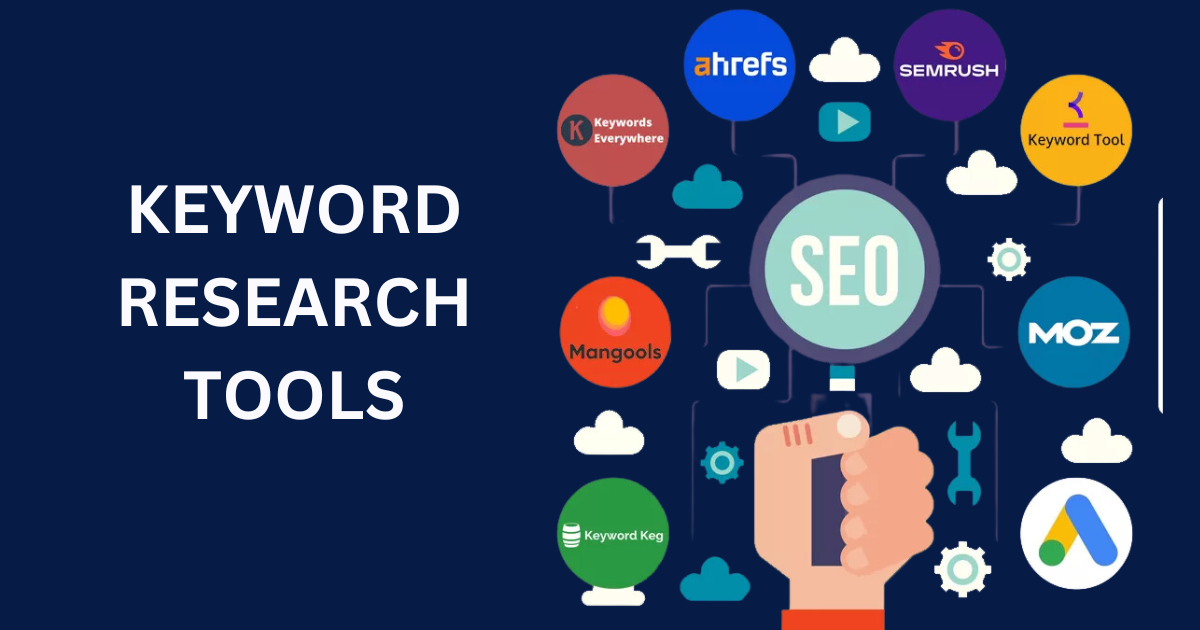
- Google Keyword Planner: A free tool that provides keyword suggestions, search volumes, and competition levels. Useful for finding relevant terms for your book metadata.
- Amazon’s Search Bar: By typing different queries related to your book’s genre or subject into Amazon’s search bar, you can see autocomplete suggestions that reflect popular search terms.
- Ahrefs: A comprehensive SEO tool that offers detailed keyword research, including search volume and competition analysis. Ideal for finding high-impact keywords.
- SEMrush: Another powerful SEO tool that helps with keyword research, providing insights into keyword performance and competitive analysis.
- Keywords Everywhere: A browser extension that shows keyword search volumes and competition data directly on search engine results pages.
To Wrap Up
Book metadata is a fundamental element of your book’s online presence, playing a crucial role in its discoverability and sales. By understanding what metadata encompasses and employing effective strategies for metadata optimization, including careful keyword research, crafting a compelling book description, and selecting the right categories, you can significantly enhance your book’s visibility on platforms like Amazon. Regular updates and the use of specialized tools can further ensure that your metadata remains optimized and effective.
As an author, taking metadata seriously is not just a technical requirement but a strategic advantage. Investing time and effort into optimizing your metadata can lead to improved discoverability, higher sales, and greater success in the competitive world of book publishing. Don’t overlook this critical aspect of your book’s marketing strategy.
Ready to take your book’s success to the next level? Start optimizing your book metadata today. Utilize the tools and resources available, implement effective strategies, and regularly review your metadata to ensure it’s working for you. By doing so, you’ll enhance your book’s visibility, attract more readers, and boost your sales. Begin your metadata optimization journey now and see the positive impact on your book’s performance!

